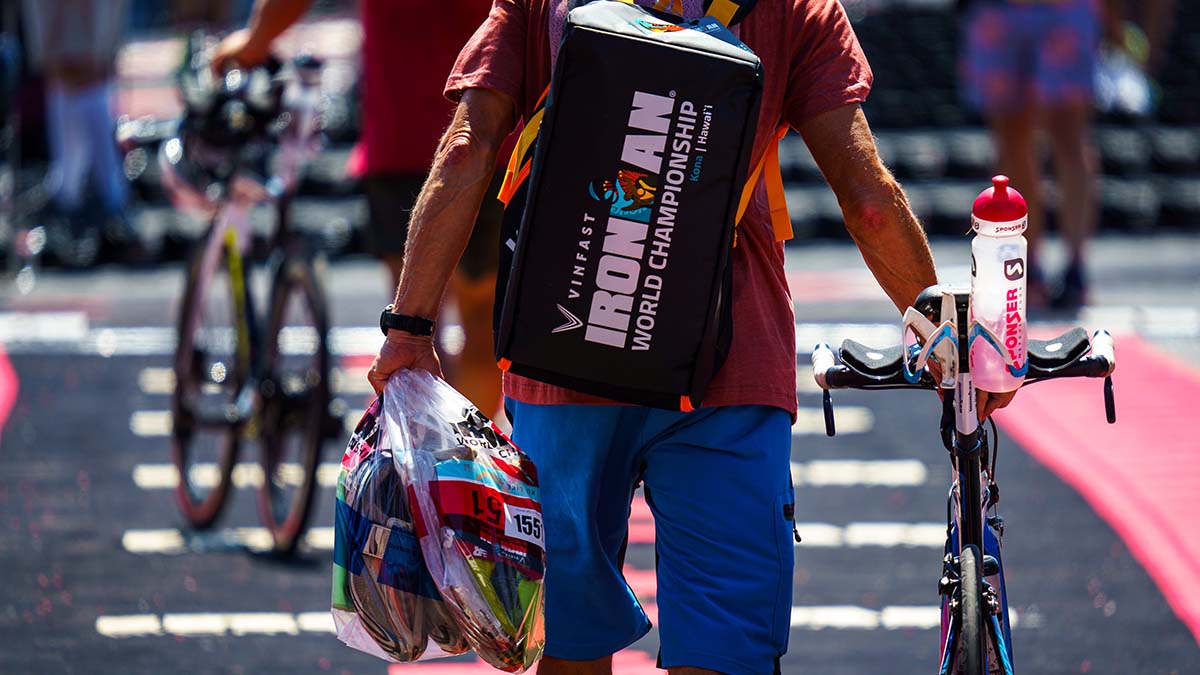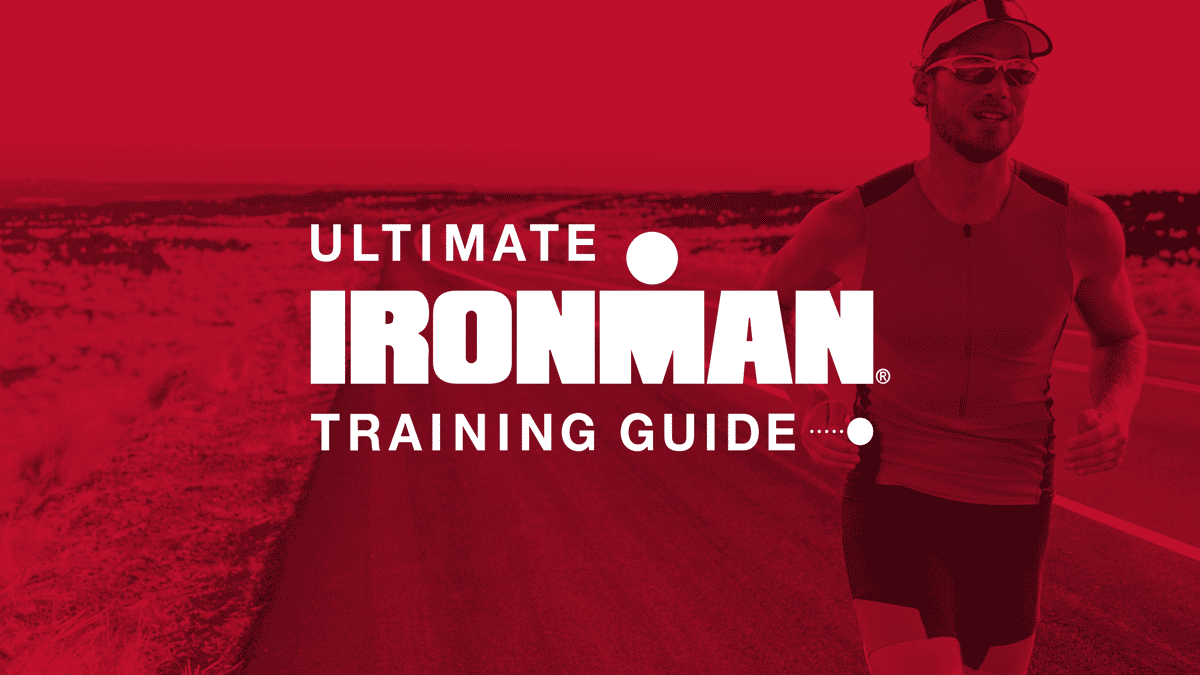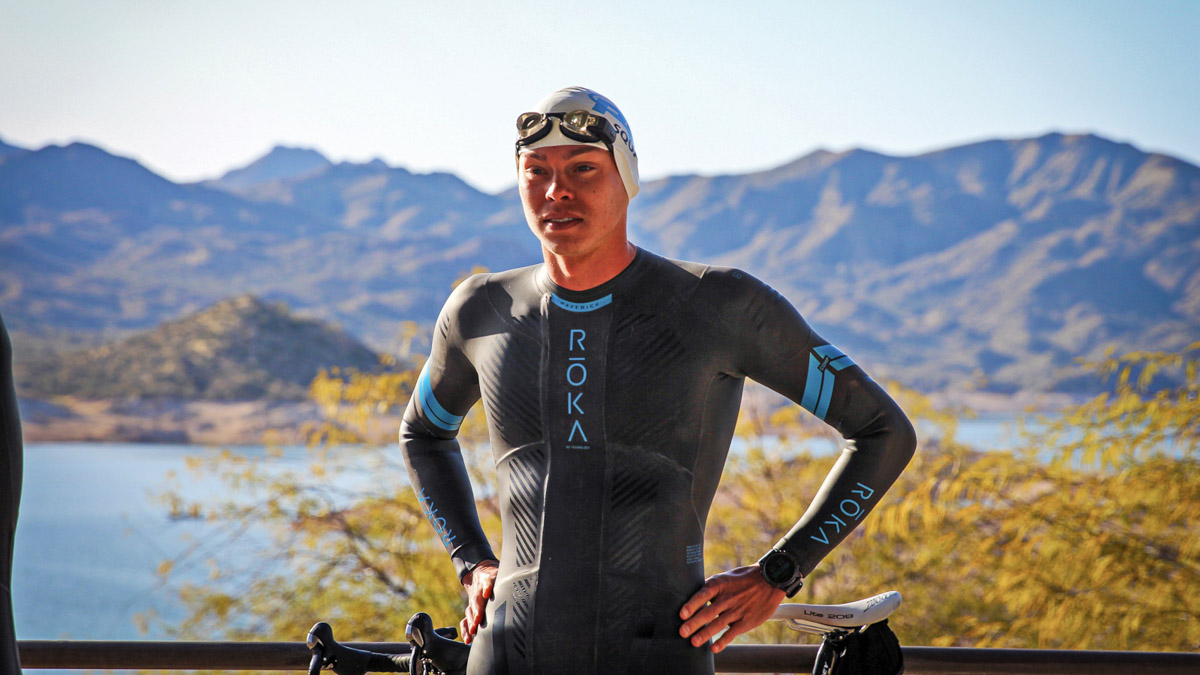Endurance athletes are a goal-oriented bunch. The more we get involved in our sport, the more we yearn to reach outside of our comfort zone, attempting to go farther and faster.
For triathletes, this reaching often leads to the inevitable question: “Can I do an IRONMAN?”
IRONMAN training requires a significant investment of resources. To determine whether now is the right time for you, consider three basic factors:
- Lifestyle
- Athletic experience
- Costs
1. A Lifestyle That Accomdates Training
Your lifestyle is a key consideration before starting your IRONMAN journey. Finding an appropriate life-work-training balance will help you through the challenges of training – rather than stand as obstacles to your success.
How much time do you have to commit? You don’t need 20+ hours a week; however, training for an IRONMAN is still a time-consuming process. A typical plan will run a course of 24-30 weeks, with the first six to 10 weeks totaling between eight and 10 hours per week.
As you get closer to the race, training time ramps up to averages closer to 12 to 15 hours per week. Peak weeks may hit 16+ hours, depending on the particular IRONMAN training plan you follow or the coach you hire.
Training time will also detract from the time you spend doing household chores, other hobbies and your social life. Consider if a balance is possible or if you would be okay with things being out-of-balance for several weeks.
You may find yourself falling asleep while standing up at family events. You may forget what your friends look like as time for socializing becomes limited. You will get used to saying, “I’m sorry, I can’t. I have a long ride on Saturday morning.”
You’ll learn to accept that bedtime is 8:30 p.m. And, despite going to bed at 8:30 p.m., you will have days where you’re certain the alarm clock is conspiring against you. But make sure you have time to sleep! One of the biggest mistakes age group athletes make is to cut sleep when volume increases.
Most importantly, think about how training will affect your family. It is crucial to have your family’s support. While you may have to get creative to balance family and training time, it can be done. Have a discussion with your family. Be honest about the time investment. Ask for their advice. Be willing to adapt your training for key events. For example, if there is a vacation or family event, plan for that to be a reduced load week or a rest day in your training. Work with your family, and ask for their support. Don’t assume they will give it.
Ask yourself, honestly, if you are willing to make these sacrifices in order to achieve your goal. While your life will not make a 180-degree change, it will change during the weeks you are training. Be honest with yourself!
2. Experience in Endurance Sports
You will be more successful and enjoy the experience much more if you have a history in some type of endurance-based sport.
Training for an IRONMAN takes a toll on your body and mind. A gradual progression can help you avoid injury, overtraining or burnout. Race day is NOT the main challenge. The training is really what makes an IRONMAN challenging—and ultimately worth doing.
Each of you will have unique circumstances in your racing history, so there isn’t a specific formula that applies to all. However, you should have some experience with triathlon and with events that require multiple hours (say 4+ hours) to complete. A coach or fellow athlete with experience at the distance can provide helpful guidance in assessing your history and race readiness.
The specific course you select should be matched to your experience and abilities. Each course will maximize or minimize certain strengths and weaknesses. For your first attempt at the distance, we recommend a course that:
- Is similar to your available training terrain. For example, if you select a race with hills, can you find access to hills for training – or suitable simulation? Conversely, a flat course presents its own challenges, so if you live in hilly terrain, you will need to teach yourself to pedal constantly. No coasting downhill on the flats!
- Speaks to your particular strengths. For example, if you are not a strong swimmer, then selecting an ocean swim may prove challenging—especially if you don’t have access to practice swims in the ocean.
- Is easy to travel. Driving to an IRONMAN reduces travel logistics significantly. Additionally, if you live close enough to the course, you may have the opportunity to train on it. On the flip side, your family may be on board if you select a course that offers the possibility of a vacation. Just recognize that flying to a venue poses some logistical challenges.
3. Financial Security
IRONMAN is expensive. The race fees alone are around $700, but they are only the start.
There are training costs, such as pool fees, gear purchases or upgrades, and sports nutrition. Your weekly food bill may increase, as you eat more to fuel your longer efforts. IRONMAN training creates a monster in your belly.
There are travel and lodging costs. Most races require that you pick up your packet at least one to two days before the race, so you need at least three to four days of lodging. If you fly or drive, there are costs associated with that.
Not all of these items are fixed costs. You can keep the overall budget in check. For example, you need a bike, but you don’t need a $10,000 bike.
You will also need a training plan. An unstructured approach to training is not a recipe for success. As the saying goes, failing to plan is planning to fail. Will you purchase a structured plan, hire a coach, find a free plan online? The decision to hire a coach goes beyond the scope of this article, but consider how the need for training advice will impact your budget.
So Are You Ready To Do an IRONMAN?
I hope this article gives you some useful factors to consider as you make your decision. While the challenges may be significant, when you cross that finish line, you will feel like every moment was worth it to hear the announcer say: “You are an IRONMAN!”
The training and the race are a triumph of the human spirit, and a display of the depth of human determination. It will push your limits, and show you how amazing the human body and mind can be.








